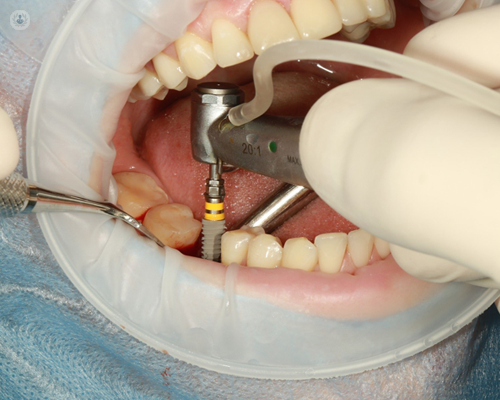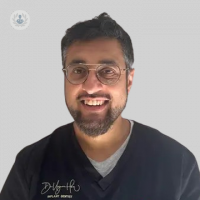Dental implants and what they can offer
Written in association with:By understanding the details of dental implants and the procedure involved, patients can make informed decisions about their oral health and choose the best solution for restoring their smile and function. Leading dental implant surgeon Dr Uzman provides an expert insight to what they can offer.

What are dental implants?
Dental implants are artificial tooth roots made from biocompatible materials such as titanium. They are surgically placed into the jawbone to provide a stable foundation for replacement teeth, which can be in the form of crowns, bridges or dentures. Dental implants mimic the function and appearance of natural teeth, offering a durable and long-lasting solution for individuals with missing teeth.
Who is a suitable candidate for dental implants?
Most adults with good general and oral health are suitable candidates for dental implants. Ideal candidates typically have:
- Sufficient jawbone density to support the implant
- Healthy gums free from periodontal disease
- A commitment to maintaining good oral hygiene
Certain conditions and lifestyle factors, such as smoking or uncontrolled diabetes, may affect the success of dental implants. A thorough evaluation by a dental implant surgeon is essential to determine individual suitability.
What is the procedure for getting dental implants?
The dental implant procedure involves several steps and can span a few months. The process includes:
Initial consultation
The dentist will assess your dental and medical history, take X-rays, and create a treatment plan tailored to your needs.
Implant placement
The implant is surgically inserted into the jawbone under local anaesthesia. Over the next few months, the implant will fuse with the bone through a process called osseointegration.
Abutment placement
Once the implant has integrated with the bone, an abutment (connector) is attached to the implant. This part will hold the replacement tooth.
Crown placement
A custom-made crown, bridge or denture is created and attached to the abutment, completing the restoration.
What are the benefits of dental implants?
Dental implants offer several advantages over traditional tooth replacement methods:
- Durability: Implants can last many years, often a lifetime, with proper care.
- Functionality: Implants provide a strong and stable foundation, allowing you to eat, speak, and smile confidently.
- Aesthetics: Implants look and feel like natural teeth, improving the appearance of your smile.
- Bone health: Implants stimulate the jawbone, preventing bone loss and maintaining facial structure.
- Convenience: Unlike dentures, implants do not require removal for cleaning and do not rely on adjacent teeth for support.
What are the risks and potential complications?
While dental implants have a high success rate, they do carry some risks and potential complications:
- Infection at the implant site
- Injury to surrounding structures, such as teeth or blood vessels
- Nerve damage, which can cause pain, numbness, or tingling
- Sinus problems, particularly with implants in the upper jaw
These risks are generally rare and can be mitigated through careful planning and adherence to post-operative care instructions.
How should I care for my dental implants?
Proper care and maintenance of dental implants are crucial for their longevity and success. Key recommendations include:
- Maintaining good oral hygiene with regular brushing and flossing
- Attending regular dental check-ups and cleanings
- Avoiding smoking, which can hinder healing and implant integration
- Limiting hard and sticky foods that could damage the implant
How long is the recovery period?
Recovery time varies depending on individual cases and the extent of the procedure. Generally, initial healing after implant placement takes a few days to a week, during which time you may experience some swelling, bruising, and discomfort. Full integration of the implant with the jawbone typically takes three to six months. Following your dentist’s post-operative care instructions will support a smooth recovery process.
If you’re interested in having dental implants, arrange a consultation with Dr Uzman via his Top Doctors profile.


